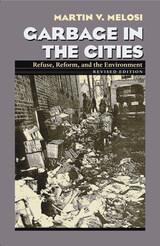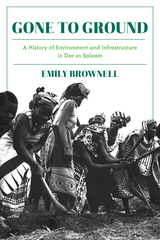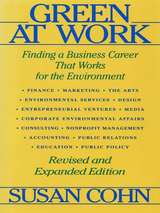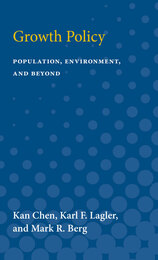7 start with G start with G

As recently as the 1880s, most American cities had no effective means of collecting and removing the mountains of garbage, refuse, and manure-over a thousand tons a day in New York City alone-that clogged streets and overwhelmed the senses of residents. In his landmark study, Garbage in the Cities, Martin Melosi offered the first history of efforts begun in the Progressive Era to clean up this mess.
Since it was first published, Garbage in the Cities has remained one of the best historical treatments of the subject. This thoroughly revised and updated edition includes two new chapters that expand the discussion of developments since World War I. It also offers a discussion of the reception of the first edition, and an examination of the ways solid waste management has become more federally regulated in the last quarter of the twentieth century.
Melosi traces the rise of sanitation engineering, accurately describes the scope and changing nature of the refuse problem in U.S. cities, reveals the sometimes hidden connections between industrialization and pollution, and discusses the social agendas behind many early cleanliness programs. Absolutely essential reading for historians, policy analysts, and sociologists, Garbage in the Cities offers a vibrant and insightful analysis of this fascinating topic.


Gone to Ground is an investigation into the material and political forces that transformed the cityscape of Dar es Salaam, Tanzania in the 1970s and early 1980s. It is both the story of a particular city and the history of a global moment of massive urban transformation from the perspective of those at the center of this shift. Built around an archive of newspapers, oral history interviews, planning documents, and a broad compendium of development reports, Emily Brownell writes about how urbanites navigated the state’s anti-urban planning policies along with the city’s fracturing infrastructures and profound shortages of staple goods to shape Dar’s environment. They did so most frequently by “going to ground” in the urban periphery, orienting their lives to the city’s outskirts where they could plant small farms, find building materials, produce charcoal, and escape the state’s policing of urban space.
Taking seriously as historical subject the daily hurdles of families to find housing, food, transportation, and space in the city, these quotidian concerns are drawn into conversation with broader national and transnational anxieties about the oil crisis, resource shortages, infrastructure, and African socialism. In bringing these concerns together into the same frame, Gone to Ground considers how the material and political anxieties of the era were made manifest in debates about building materials, imported technologies, urban agriculture, energy use, and who defines living and laboring in the city.


Green at Work, published by Island Press in 1992, was the first source of information to help nontechnical but environmentally concerned job seekers learn about career opportunities with environmental companies or within the newly emerging "green" corporate culture. Now entirely revised and expanded, this indispensable volume again offers invaluable tools and strategies for launching a green career.
Susan Cohn has expanded her scope beyond the business world to examine environmentally focused, nontechnical careers in a wide variety of fields, including communications, banking and finance, consulting, public policy, the non-profit sector, and more. This completely updated edition includes:
- profiles of more than 70 individuals that illustrate how people have woven their skills, values, and passions into their work
- listings of more than 400 companies with contact names, addresses, phone numbers, information on what the company does, and its environmental programs and policies
- listings of more than 50 resources, including organizations, publications, and other sources of information
- a bibliography of recommended readings


READERS
Browse our collection.
PUBLISHERS
See BiblioVault's publisher services.
STUDENT SERVICES
Files for college accessibility offices.
UChicago Accessibility Resources
home | accessibility | search | about | contact us
BiblioVault ® 2001 - 2024
The University of Chicago Press









